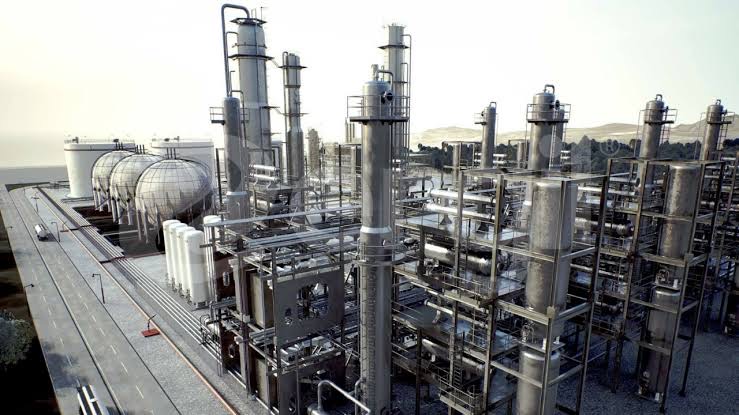The Congolaise de Raffinage (CORAF), a subsidiary of the state-owned Société Nationale des Pétroles du Congo (SNPC), operates the only refinery in Congo, located in Pointe-Noire.
CORAF processes one million tons of crude oil annually, producing finished products like butane gas, gasoline, kerosene, light diesel, and heavy fuel oil, which meet around 70% of the nation’s refined petroleum needs.
The refinery sources most of its crude oil from the Djeno terminal, situated south of Pointe-Noire, which handles 95% of Congo’s oil production and connects to the refinery via a 25-kilometer pipeline.
To address increasing domestic energy demands and cut down on imports, the government is building a new refinery in Fouta, near Pointe-Noire.
The Atlantic Petrochemical Refinery, developed in partnership with the Chinese company Beijing Fortune Dingheng Investment, represents a $600 million investment.
The project’s first phase will produce 2.5 million tons annually, focusing on high-quality gasoline, diesel, liquefied petroleum gas, kerosene, fuel oil, and petrochemical feedstocks like propylene and hydrogenated naphtha.
The refinery is slated to begin operations by the end of 2025, bolstering Congo’s energy security.
Congo is actively expanding its downstream gas sector with major projects and strategic initiatives.
Wing Wah’s Banga Kayo project aims to monetize previously flared associated gas through an onshore development expected to yield 30 billion m³ of gas over 25 years.
The project will process gas into dry gas, LNG, LPG, and polypropylene, reducing emissions while contributing to domestic energy supply.
Eni’s Congo LNG project took a significant step in February 2024 with the delivery of its first LNG cargo from the Tango FLNG facility, which has a liquefaction capacity of 3 million tons per year.
This project strengthens Congo’s LNG production for domestic use and export markets.
The Republic of Congo is also preparing to roll out a gas master plan and a new gas code to attract investments across the natural gas value chain.
These frameworks aim to drive industrialization and economic growth by providing a roadmap for infrastructure development.
The Gas Master Plan seeks to encourage investments in LNG, LPG, and gas-to-power projects, leveraging natural gas for sustainable development.
To modernize existing facilities and expand refining capabilities, Congo is securing international partnerships.
In November 2024, SNPC partnered with Azerbaijan’s State Oil Company to upgrade the CORAF refinery, enhancing its capacity and aligning with environmental standards.
In October 2024, Russia agreed to build a fuel pipeline from Pointe-Noire to Brazzaville to improve the country’s fuel distribution efficiency.
The agreement includes plans for a new oil refinery, to be developed with Russian collaboration in the next phase of the project.
In May 2024, Algeria’s Sonatrach and SNPC discussed expanding their partnership to boost Congo’s refining capacity and hydrocarbon resource development.
By modernizing infrastructure and fostering global partnerships, Congo is strengthening its energy sector to meet domestic demands and become a regional leader in refined petroleum products.
The Congo Energy & Investment Forum 2025, set for March 25-26 in Brazzaville, will highlight these advancements and connect developers with policymakers to secure investments and partnerships in the energy sector.

